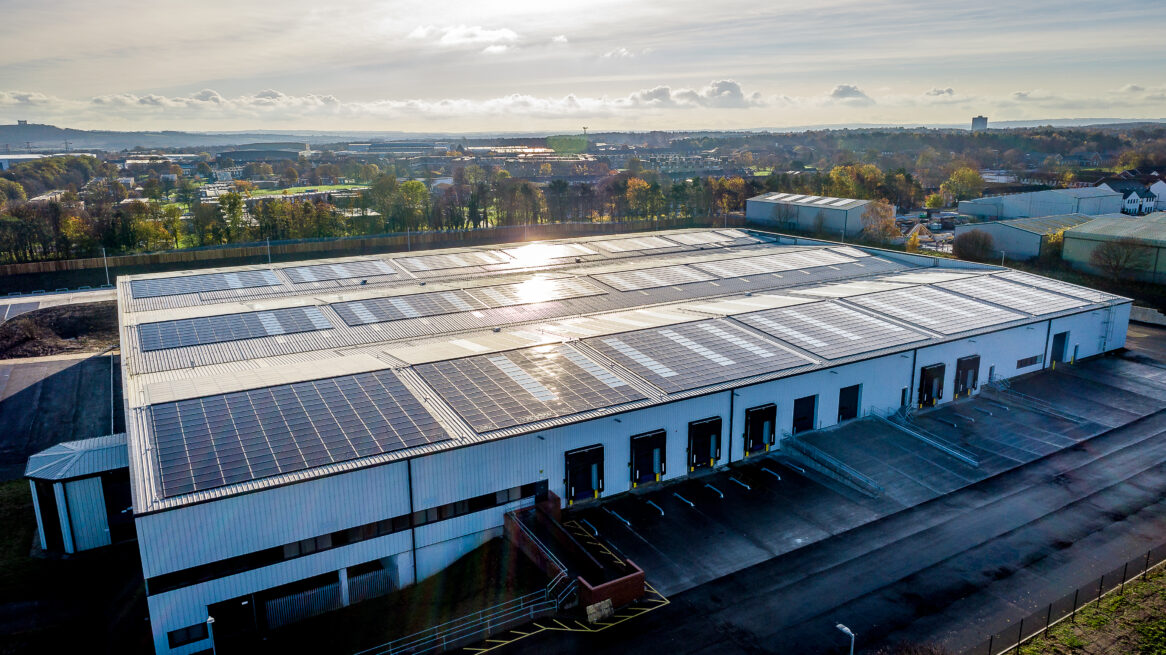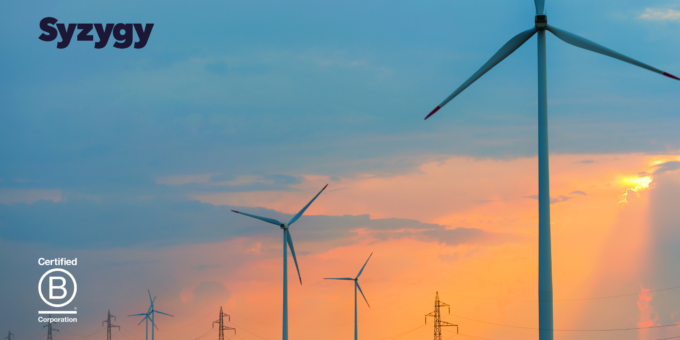Installing rooftop solar PV and offsetting grid demand is one of the most cost-efficient ways to generate local electricity, decarbonise buildings, and tackle operational emissions. Despite the benefits, most self-consumption projects do not utilise the entire available roof space because the building’s electricity demand can only justify a small system. A growing number of commercial buildings are utilising collective self-consumption to justify larger PV systems, increase revenues, and boost IRRs.
What is collective self-consumption?
The standard approach to rooftop solar PV projects is to consume most of the generated electricity onsite and then export the surplus power to the grid at a relatively low wholesale market price. Instead of selling this excess electricity on the wholesale market, it may also be sold to neighbouring buildings without solar panels. This concept is known as collective self-consumption.
Financially, adopting a collective self-consumption approach can be mutually beneficial for PV system owners and neighbouring buildings. The PV system owner can receive a higher price for the same electricity, while neighbouring buildings can enjoy a discount compared to their normal electricity tariff.
The PV system owner benefits significantly from the ability to install larger systems while still maintaining strong financial returns. Traditionally, PV systems are sized to achieve 70-90% onsite consumption, optimizing IRR. By expanding the pool of onsite and local consumption, owners can justify installing larger PV systems, utilising more of the available roof space. This scalability reduces costs per PV panel through economies of scale and increases revenue by generating more electricity.
What opportunities exist for commercial buildings?
Small rooftop solar systems are often installed even when there is sufficient space and local demand for a larger system. Where legislation allows it, collective self-consumption can enhance the IRR of solar PV on commercial buildings, and new subsidies are further strengthening the financial returns.
The concept of collective self-consumption is not new, but the opportunities have expanded in Europe since 2018 with the introduction of the revised EU Renewable Energy Directive. This directive established a framework for ‘energy communities’, prompting many European countries to enact their own legislation to permit, and in some cases subsidise, collective renewable energy consumption within these communities.
Notable national-level schemes include Italy’s ‘communita energetiche rinnovabli’, offering subsidies for PV systems up to 1MW, France’s ‘auto-consommation collective’, which provides reduced network taxes for systems up to 3MW, and Spain’s ‘autoconsumo collectivo’, offering reduced taxes for systems up to 100kW (with potential expansion to 1MW). Initially reserved for small PV systems, these schemes are increasingly accommodating larger system sizes due to their success and popularity.
Is collective self-consumption possible everywhere in Europe?
While specifics vary by country, a collective self-consumption approach is generally possible across the EU, especially in countries with added financial incentives. Outside the EU, notably in the UK, the absence of the Renewable Energy Directive means the concept of energy communities differs. In the UK, similar approaches require innovative corporate PPA set-ups or private networks. However, complexities and network taxes associated with these set-ups often render these options unfeasible.
Syzygy’s view:
In today’s solar PV market, the rewards of innovation are substantial for landlords, tenants, and legislators alike. The rate of rooftop PV installations on commercial buildings has never been higher and maximising a project’s potential hinges on identifying the optimal approach to selling the generated power.
For legislators aiming to meet national decarbonisation targets, collective self-consumption has proven to be an effective mechanism for promoting greater use of renewable energy at the local level. Many European jurisdictions are already reaping the benefits of energy communities and we hope that other jurisdictions, including the UK, will follow suit.
With over a decade of experience across the UK and the EU, Syzygy's solar PV teams are ready to support you with your solar PV investment decisions, including navigating the challenges and opportunities of collective self-consumption. For more information, contact us at hello@syzygyconsulting.eu.
Sources:





